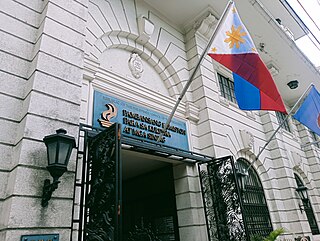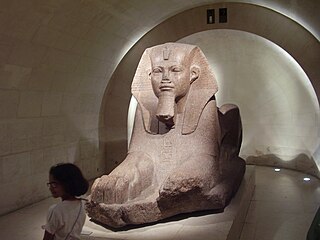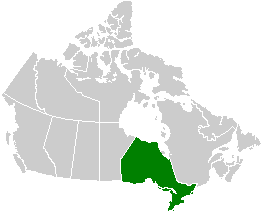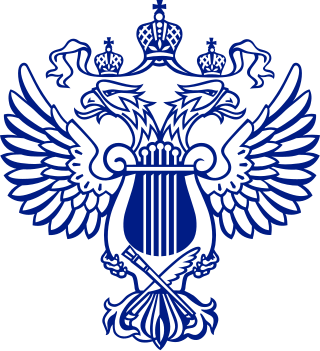Related Research Articles
In the broadest sense, cultural resource management (CRM) is the vocation and practice of managing heritage assets, and other cultural resources such as contemporary art. It incorporates Cultural Heritage Management which is concerned with traditional and historic culture. It also delves into the material culture of archaeology. Cultural resource management encompasses current culture, including progressive and innovative culture, such as urban culture, rather than simply preserving and presenting traditional forms of culture.
The Department of Internal Affairs (DIA) is the public service department of New Zealand charged with issuing passports; administering applications for citizenship and lottery grants; enforcing censorship and gambling laws; registering births, deaths, marriages and civil unions; supplying support services to ministers; and advising the government on a range of relevant policies and issues.

The National Commission for Culture and the Arts of the Philippines is the official government agency for culture in the Philippines. It is the overall policy making body, coordinating, and grants giving agency for the preservation, development and promotion of Philippine arts and culture; an executing agency for the policies it formulates; and task to administering the National Endowment Fund for Culture and the Arts (NEFCA) – fund exclusively for the implementation of culture and arts programs and projects.

The Ministry of Culture, Sports and Tourism is a central government agency of South Korea responsible for the areas of tourism, culture, art, religion, and sports. It has two vice ministers, three assistant ministers, one commission, and over 60 divisions. The first Minister of Culture was novelist Lee O-young.

Tourism in China is a growing industry that is becoming a significant part of the Chinese economy. The rate of tourism has expanded over the last few decades since the beginning of reform and opening-up. The emergence of a newly rich middle class and an easing of restrictions on movement by the Chinese authorities are both fueling this travel boom. China has become one of world's largest outbound tourist markets. According to Euromonitor International, economic growth and higher incomes in nearby Asian countries will help China to become the world's number one tourist destination by 2030.

Rural tourism is a form of tourism that focuses on actively participating in a rural lifestyle. It can be a variant of ecotourism, emphasizing sustainable practices and community involvement. Many villages can facilitate tourism because of the hospitality and eagerness of villagers to welcome or host visitors. The mechanization of agriculture has reduced the need for manual labor, leading to economic pressures on some villages and prompting young people to migrate to urban areas. However, a segment of the urban population is increasingly interested in visiting rural areas to experience and understand the rural lifestyle.

The Ministry of Culture and Tourism is the Ethiopian government department responsible for researching, preserving, developing, and promoting the culture and tourist attractions of Ethiopia and its peoples, both inside the country and internationally. In doing so the Ministry closely works together with different national and international stakeholders.

Tourist Resorts (Kerala) Ltd or (TRKL) is a Government of Kerala undertaking under Kerala Tourism Department, established in August 1989 to promote tourism investment and to develop Tourism infrastructure in the Indian state of Kerala. TRKL was conceived to identify tourism infrastructure needs of the state and bridge any identified gaps. Kerala is today growing at an amazing pace in tourism, adhering to the principles of indigenousness, environmental sustainability and community participation. Kerala's beaches, hill stations, backwaters, wildlife sanctuaries, historical monuments, etc. attract foreign as well as domestic tourists.

Heritage commodification is the process by which cultural themes and expressions come to be evaluated primarily in terms of their exchange value, specifically within the context of cultural tourism. These cultural expressions and aspects of heritage become "cultural goods," transformed into commodities to be bought, sold and profited from in the heritage tourism industry. In the context of modern globalization, complex and often contradictory layers of meaning are produced in local societies, and the marketing of one's cultural expressions can degrade a particular culture while simultaneously assisting in its integration into the global economy. The repatriation of profits, or "leakage", that occurs with the influx of tourist capital into a heritage tourist site is a crucial part of any sustainable development that can be considered beneficial to local communities. Modern heritage tourism reproduces an economic dynamic that is dependent upon capital from tourists and corporations in creating sustained viability. Tourism is often directly tied to economic development, so many populations see globalization as providing increased access to vital medical services and important commodities.
The Ministry of Tourism, Culture and Sport, was created on January 18, 2010 when the Ministry of Culture and the Ministry of Tourism were combined under one ministry. Sport was added to the portfolio in 2011. It is responsible for the development of policies and programs and the operation of programs related to tourism, arts, cultural industries, heritage sectors and libraries, in Ontario. The Ministry works in partnership with its agencies, attractions, boards and commissions and the private sector to maximize the economic, cultural and social contributions of its agencies and attractions, while promoting the tourism industry and preserving Ontario's culture and heritage.

The Ministry of Culture of Azerbaijan Republic is a governmental agency within the Cabinet of Azerbaijan in charge of regulation of the activities and promotion of Azerbaijani culture. The ministry is headed by Anar Karimov.

The Ministry of Youth and Sports of Azerbaijan Republic is a governmental agency within the Cabinet of Azerbaijan in charge of regulating activities related to sports and youth development in Azerbaijan Republic. The ministry is headed by Farid Gayibov.
Manitoba Sport, Culture, Heritage and Tourism is the department of the Government of Manitoba responsible for managing government programs and services that support the sport, art, culture, and heritage of the province, through developing, supporting, promoting, and celebrating the identity and well-being of Manitoba and its communities.

Archaeology and conservation of cultural resources in Ontario fall under the Ministry of Tourism, Culture and Sport. The Province of Ontario has created Acts to insure the protection archaeological and cultural resources. Acts such as the Ontario Heritage Act and Environmental Assessment Act provide the major legal documents that protect heritage and cultural resources. Additionally, Acts such as the Planning Act, the Aggregate Resource Act and the Ontario Cemeteries Act are also implemented when specific triggers occur during archaeological assessments.

The Ministry of Culture of the Russian Federation is a ministry of the Government of Russia responsible for state policy in cultural spheres such as art, cinematography, archives, copyright, cultural heritage, and censorship.
Cultural policy in Abu Dhabi, a city within the United Arab Emirates, refers to any initiative undertaken by the Emirate government aimed at achieving goals to contribute to or shape culture. Abu Dhabi's government aims to develop a cultural infrastructure that will allow it to establish itself as a reference point for culture on three levels:

The Carniriv is an annual festival held in Port Harcourt, Nigeria. The Carnival starts a few weeks before Christmas, and lasts seven days. During this time, several ceremonial events are held; most of which have some cultural and/or sacred significance.
Tourism in Ghana is regulated by the Ministry of Tourism, Arts & Culture. This ministry is responsible for the development and promotion of tourism related activities in Ghana.

Cultural governance is governance of culture. It includes cultural policy made by governments but extends also to cultural influence exerted by non-state actors and to policies which influence culture indirectly.
References
- 1 2 "Tourism Summit Begins In Rivers, 'Morrow". The Tide . Port Harcourt: Rivers State Newspaper Corporation. 22 June 2012. Retrieved 2 June 2018.
- 1 2 3 "Ministry of Culture and Tourism". mct.rv.gov.ng. Retrieved 2 June 2018.